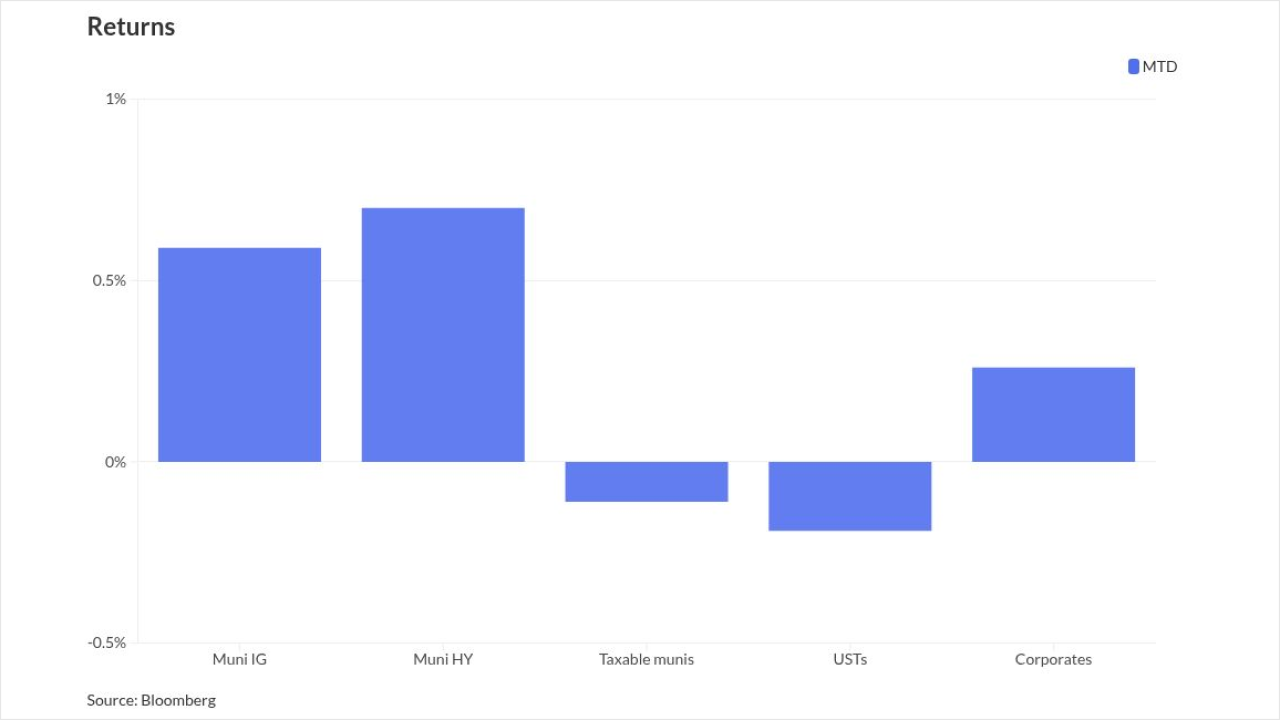Regulators who are charged with shaping the looming Financial Data Transparency Act are encouraging cities and states worried about the controversial new law to begin to share their concerns now, ahead of the rulemaking process.
"We want to hear from you," said Adam Wendell, deputy director of the Office of Municipal Securities at the Securities and Exchange Commission, speaking Sunday during the annual Government Finance Officers Association conference.
"We want to engage with you and make sure we're doing this in a way that works for everyone," Wendell said, noting that the four-year rulemaking process will include both formal and informal periods for issuer feedback.
"We don't know all of your challenges and we don't know everything, so please do participate in the process."

Wendell's comments came during a standing-room only panel on the FDTA, which was
The FDTA and its implications for issuers dominated many discussions at the GFOA, including during the debt committee, which met Saturday.
The GFOA is the best body to raise issuer concerns with regulators, Michael Decker, senior vice president of public policy and research at the Bond Dealers of America, told the debt committee.
"The GFOA is a leader in the issuer community and it would be an appropriate role for the GFOA to take on," Decker said.
"Now is the time to get in to talk to them – before they start writing," Decker added. "Don't wait until the proposal comes out; at that point it's almost too late."
The implementation will take at least four years, with several comment periods, and a compliance date for muni issuers has not even been set yet.
In the current first phase, the SEC is working with other regulators to craft the joint data standards by December 2024. That will be followed by another two-year period to develop the muni-specific rule, which is due December 2026.
"There may be some flexibility in terms of actual compliance date," Wendell said.
During the first phase, the SEC's Municipal Securities Office "won't be holding the pen" but remains at the table, Wendell said. In the second phase, the office will be writing the rules, he said.
"Right now in the joint rulemaking phase, the most important thing our office is doing is staying at the table; we are participating in the meetings and being asked for our input," he said. "We want to make sure the end result is workable for us when it comes time to do phase two."
When asked whether there would be a penalty for issuers who fail to comply, Wendell said that also remained unknown, and may or may not be included in a final rule.
A major early concern for issuers comes from the question of legal entity identifiers, or LEIs, used to identify legally distinct entities involved in financial transactions. Under the FDTA, issuers will likely need to use LEIs to tag or submit their financial disclosure, which would require a big shift from a market that currently relies on bond CUSIPs to link to information that's posted in EMMA.
When the FDTA was first enacted, issuers were focused on questions about technology and data standards, and are only now starting to realize the challenges surrounding the LEI issue, said Kimberley Nichols, deputy director of Florida's division of bond finance, speaking during the debt committee meeting.
The FDTA is "the act that just keeps on giving," Nichols said.
The current LEI system in the municipal space will require significant clean up if it is going to be used, said Nichols and others.
It's important that issuers "have a seat at the table," she said.
Some of the anxiety stems from the sheer uncertainty of key terms and provisions, details that will be hammered out during rulemaking and may end up not being a cause of concern after all, some issuers said.
"It can't be as bad as we're worrying it's going to be," said Kendel Taylor, director of finance for the City of Alexandria, speaking on the FDTA panel with Wendell. "The key is, keep us in the conversation."





